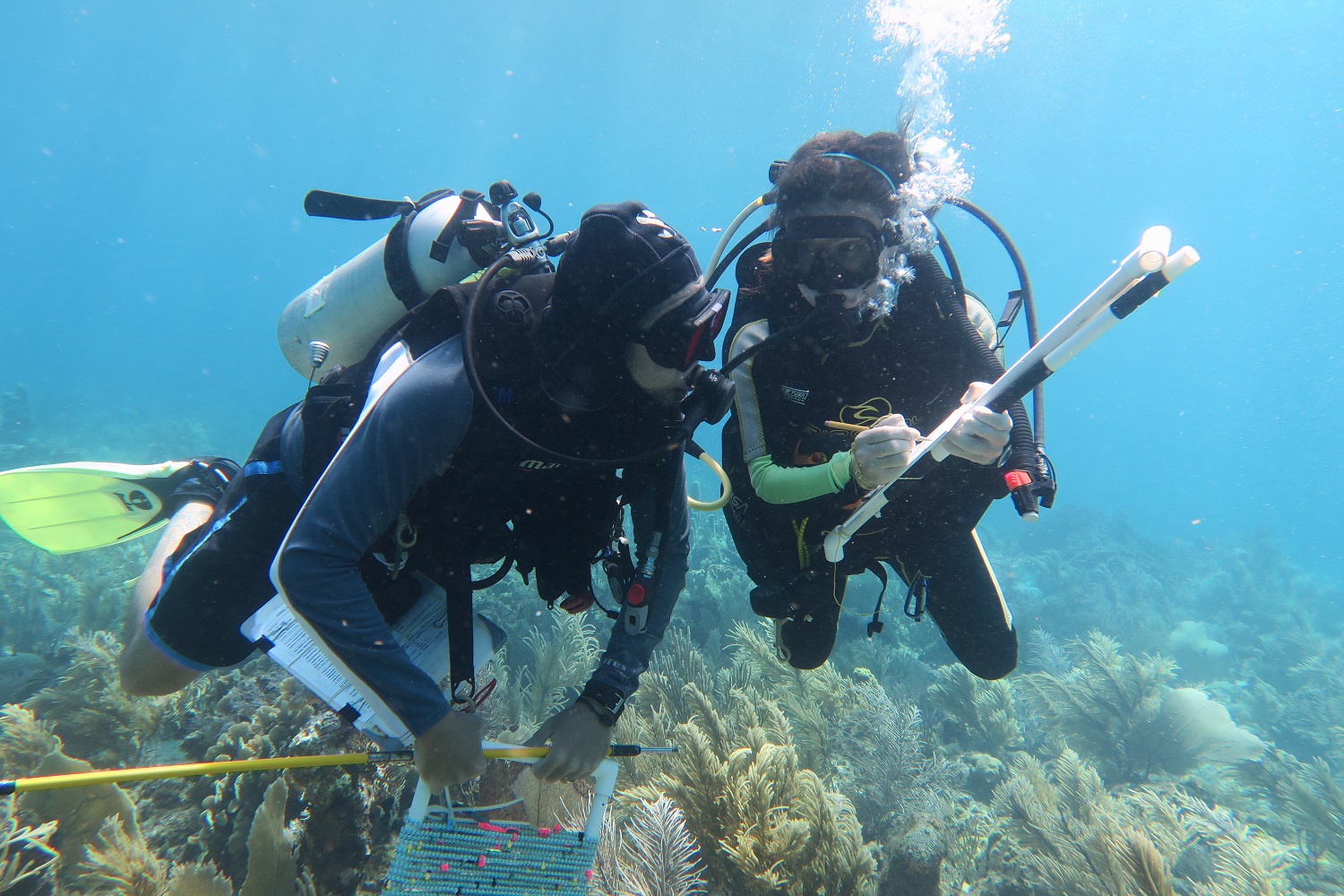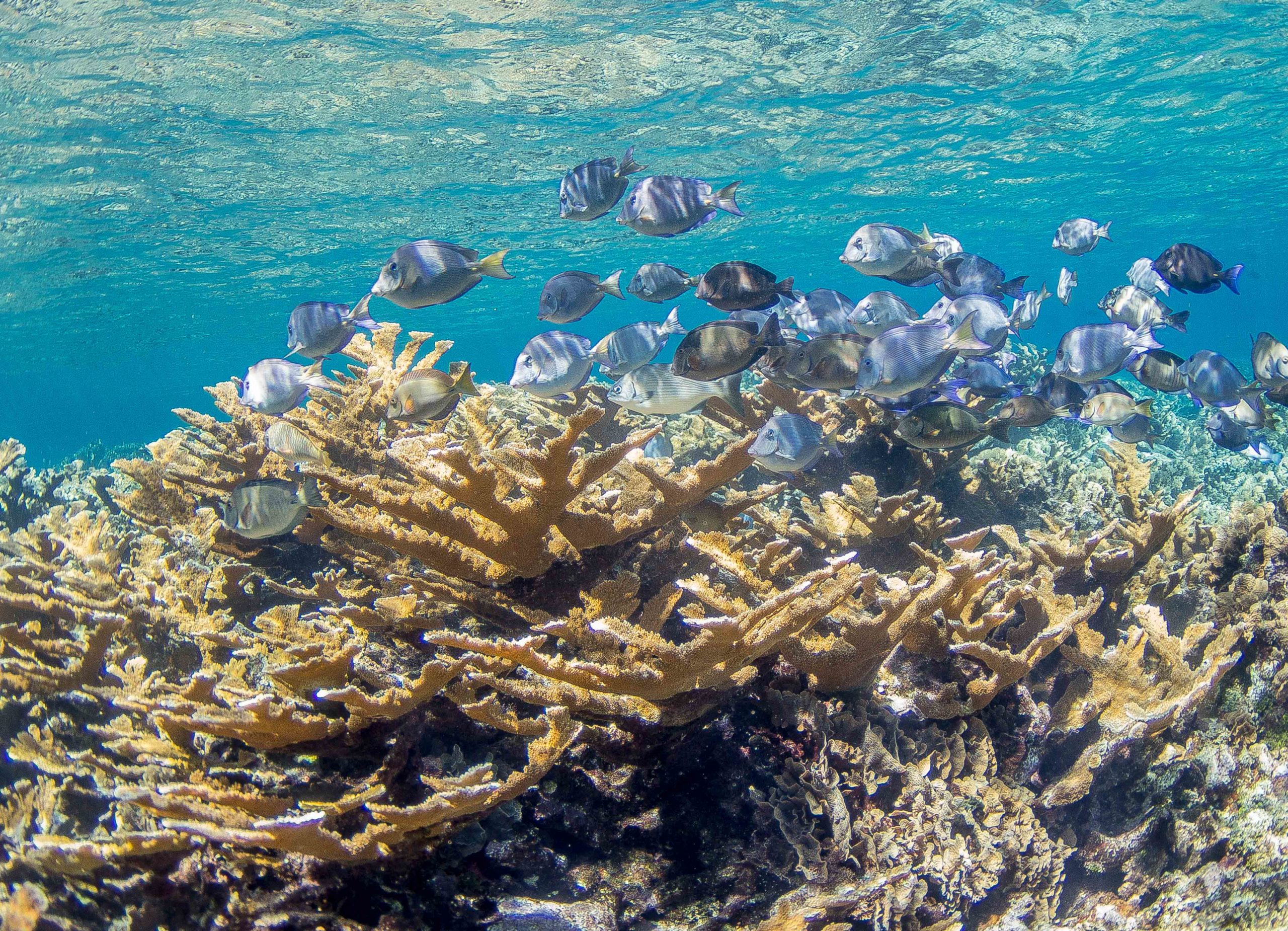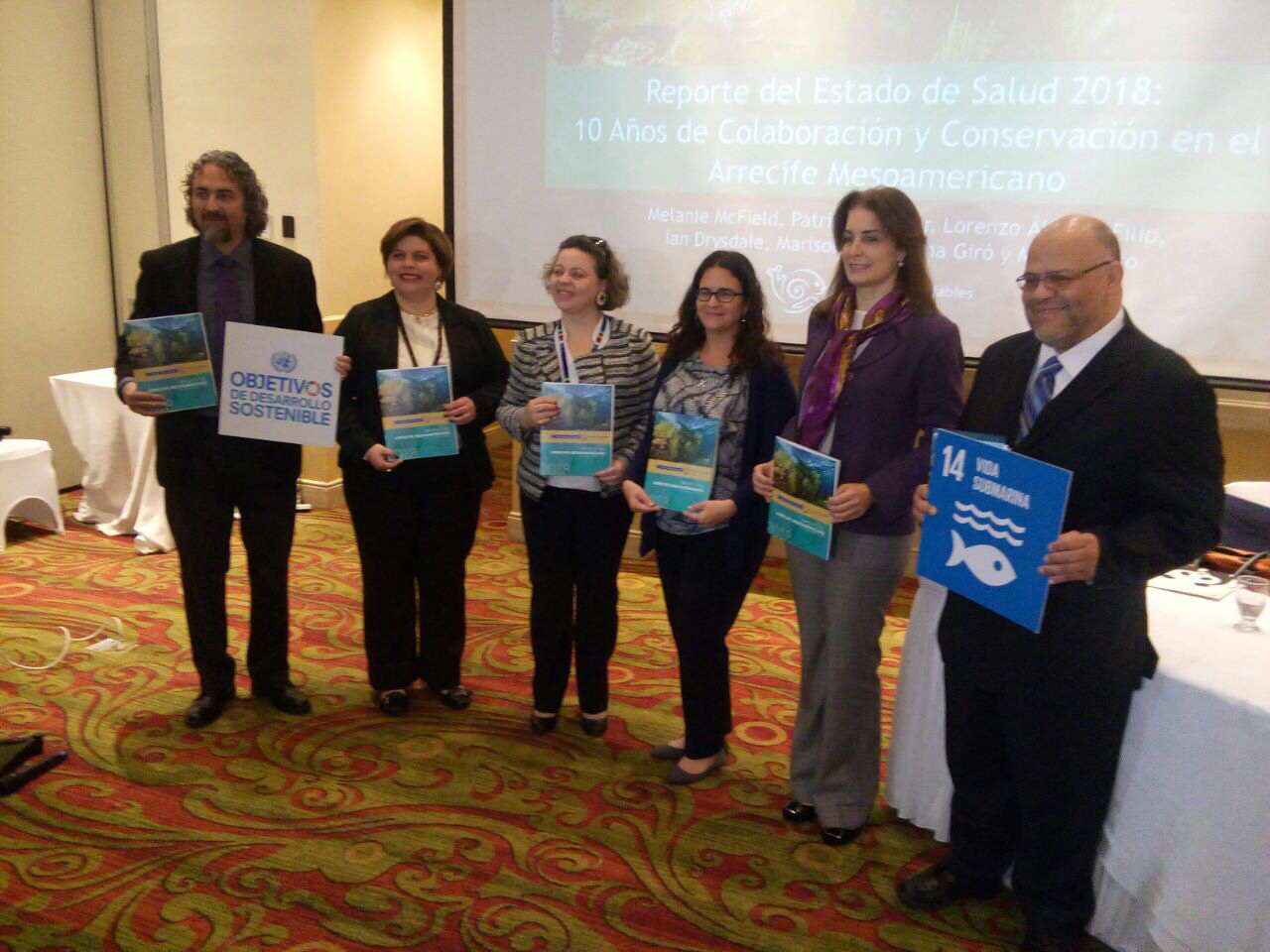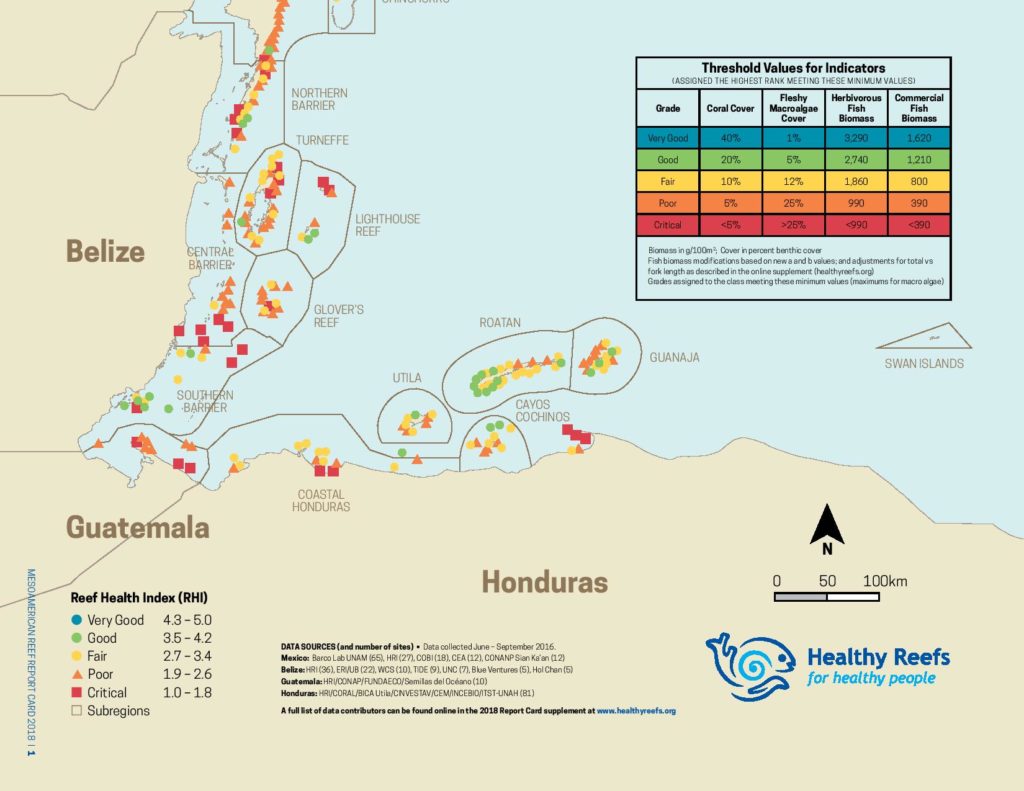
Heroic efforts by a suite of dedicated groups in the Mesoamerican Reef (MAR) – from non-profits to the dive community, governments to local fishing communities – have resulted in measurable improvements in reef health. Every two years, the Healthy Reefs Initiative (HRI), an international alliance of over 60 organizations including CORAL, publishes a Report Card on the status and trends of reef health in the MAR using data collected* from over 300 sites across 1000 kilometers and four countries. HRI Report Cards give sites a reef health score, analyze changes over time, and propose actions to improve reef health and enable reefs to endure and thrive.

The recently released 2018 Report Card tells us that overall reef health in the MAR has improved from an initial reef health index of Poor (2.3) in 2006 to Fair (2.8) this year, using a scale that ranges from Critical (1) to Very Good (5). The positive trend is a result of increases in fish biomass, which are attributable to stronger fisheries management and a significant increase in Marine Protected Areas, which now cover 57% of the MAR.
Of the four countries that comprise the MAR – Honduras, Guatemala, Belize, and Mexico – Honduras received the highest score for reef health (3.0). In addition to having relatively high coral cover, Honduras has the highest biomass of herbivorous fishes (like parrotfish and surgeonfish), which feed intensively on macroalgae, a kind of fleshy algae that can grow unchecked in polluted waters and outcompete corals for space. We are pleased to report that the reefs in West End, Roatán, where CORAL has close to 15 years of engagement, are among the healthiest reefs in the entire region. In line with the 2018 Report Card’s Call to Action for Honduras, CORAL is addressing both unsustainable fishing and land-based pollution through our Clean Water for Reefs and Healthy Fisheries for Reefs Initiatives.

HRI commenced the International Year of the Reef in a big way with simultaneous launches of the 2018 Report Card in Honduras, Guatemala, Belize, and Mexico. The events were well attended by partners and other allies, and received significant local and international media coverage. CORAL was proud to participate in Honduras’ Report Card launch on January 10th in Tegucigalpa.
The 2018 Report Card also marks a decade of data collection by HRI, providing an important temporal perspective on trends in reef health. Despite the fact that corals worldwide were hard-hit by mass bleaching over the last few years, 10 years of reef monitoring by HRI tells us that things are looking up in the MAR.
With the 2018 Report Card launch marking a decade of collaboration and conservation, the good news for the Mesoamerican region’s reefs, and the kick-off of the third International Year of the Reef, 2018 is off to a great start!

*Data is collected using the Atlantic Gulf Rapid Reef Assessment (AGRRA) reef monitoring methodology, which assesses coral health based on four key indicators: living coral cover, fleshy macroalgal cover, herbivorous fish biomass, and commercially-important fish biomass.